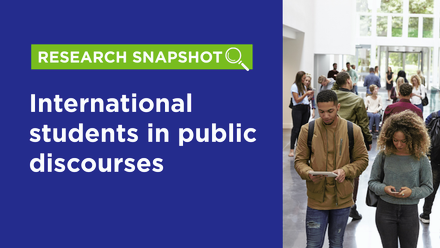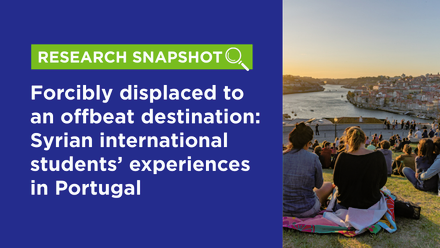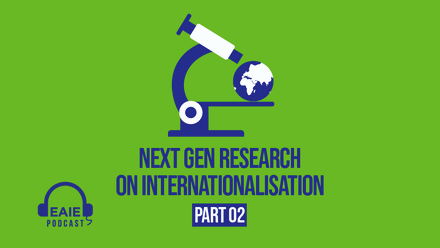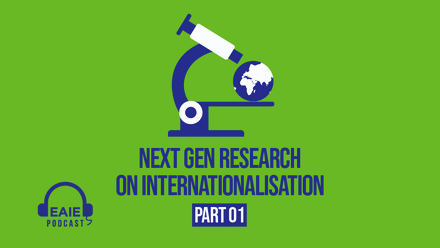EAIE Barometer: Student needs and interests
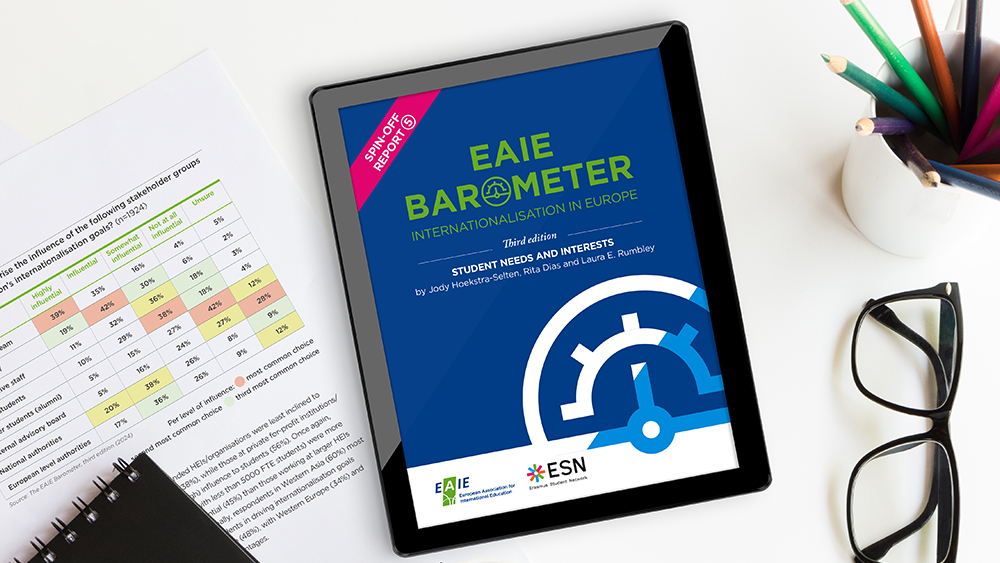
The 'EAIE Barometer spin-off report #5: Student needs and interests' is co-authored by the European Association for International Education (EAIE) and the Erasmus Student Network (ESN). It pools data and insights from two signature research projects: the EAIE Barometer (third edition) (2024) and the 15th edition of the ESNsurvey (2024), to bring together the perspectives of hundreds of international higher education professionals and thousands of higher education students from across Europe.
This spin-off report is free to download and share in order to purposefully engage students and the broader international higher education community.
The report addresses questions of student involvement in or relevance to internationalisation in European higher education in five key areas:
- students as a driver for internationalisation
- Erasmus+ outreach and recognition
- attention to student well-being
- the impact of internationalisation
- barriers for students to engage in internationalisation opportunities
The Barometer data clearly shows that support from students and alumni is not frequently perceived as influential in the establishment of clear internationalisation goals for institutions.
While some professionals do not always recognise the value of student contributions in building the higher education community – and more importantly, in supporting democratic processes within it – many students do believe in the importance of their role.
Respondents from publicly funded HEIs/organisations were least inclined to see current students as (highly) influential (38%), while those at private for-profit institutions/ organisations most frequently attributed (high) influence to students (56%).
Empowering students with responsibilities and integrating them into decision-making processes allows them to act as a bridge between their peers and higher education professionals. This can lead to more efficient support services.
[Student] awareness of Erasmus Mundus Joint Masters, the European Solidarity Corps, and the European University Alliances remains notably low.
The lack of automatic recognition of credits earned while on exchange creates significant challenges, including a sense of mistrust amongst students considering participation in Erasmus+.
While good-practice examples from the field show that progress has been and continues to be made in dealing with student well-being—in particular, mental health—there is still room for improvement.
Even if HEIs are unable to directly provide accommodation due to limited capacity, they should ensure that students receive comprehensive guidance and reliable information to help them secure safe and affordable housing.


